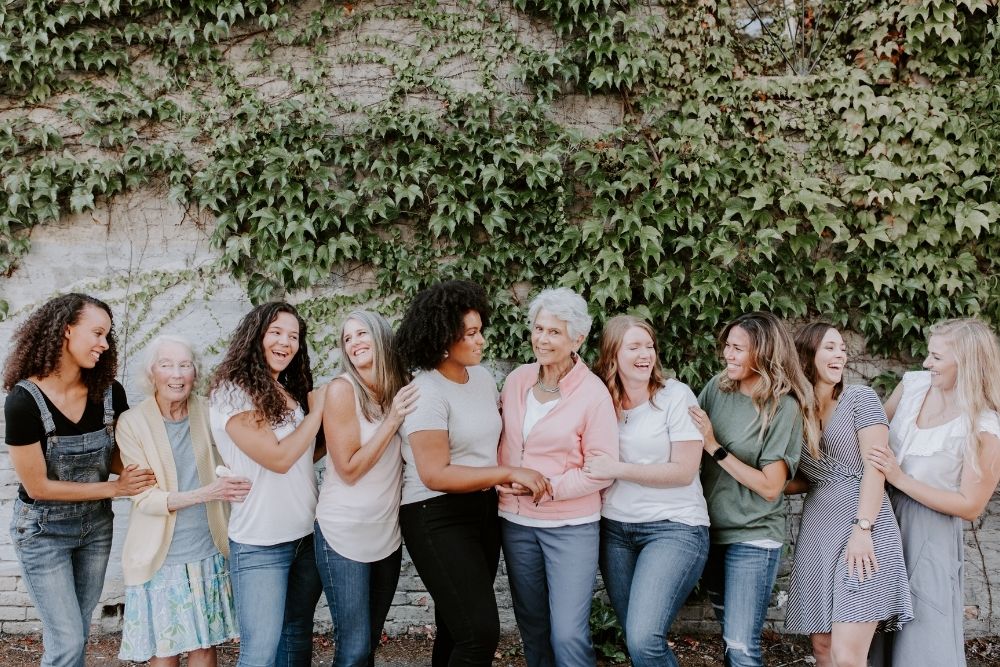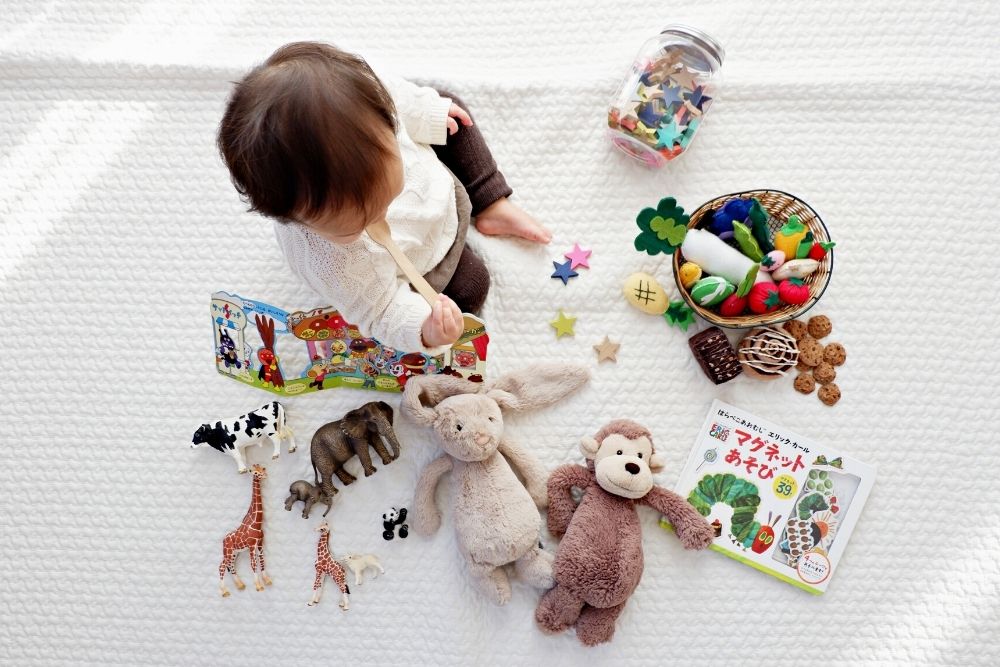
Why Am I Still Crying?
I was speaking at an event recently and shared a meal with several strangers who quickly became friends. One of the women was processing over lunch and her beautiful blue eyes filled with tears as she struggled to put words to her wondering. “Why am I still crying? I mean shouldn’t I be over this since it was over a decade ago? I mean if I am good with God and happy in life, why would I still be emotional about something that happened that long ago?” Her sentiment came out something like this… She seemed surprised by her own emotion and I wondered where it had been hiding all these years. She seemed bothered by her sadness and wrestling with a theology that had bought into the idea that if she was “good with God” she should no longer be sad. Somehow the ability to mourn or emote- that had expired. That was for wimps. That was for people who haven’t received God’s goodness or healing or joy. Or so she was made to believe.
As she asked these kinds of questions, I wondered what she so vaguely hinted at that hurt her so many years ago and I also truly wondered where she had picked up such ideas. Near the end of our meal, I asked her “Did someone, somewhere along the way convince you that as a Christian you should no longer be sad about sad things?”
“Yes…” she said…”yes I think they did.”
Later that night she found me and she was crying again. She was feeling her feelings so strongly, almost like she couldn’t escape them, like they were bubbling up and overflowing and as much as she had tried to make them go away, they were breaking all her rules. She was a bit beside herself wondering what to do with all of this. She assured me she is happy in her life, in her marriage, and with God. I believed her. But over a decade ago she had been dating a man who she had thought she would end up marrying, but called off dating him. She didn’t feel like that was the direction her life was being led. And he ended up committing suicide. She was made to feel by spiritual mentors and leaders in her life as though it was her fault OR as though she should be fine because she “has God now.”
I watched her struggle with struggling. I watched her be confused by still having emotions about this a decade later. And I just couldn’t help but blurt out “Of course you are still sad. Someone ending their life is deeply sad. We should be sad when people end their lives. We aren’t intended to be people who get so down, so desperate, so out of hope that we want to give it all up. If you aren’t sad about that, I would say something is off. Where did you get the idea that you can’t look back and still be sad about someone you once loved killing themself?”
I tell you this story because we are either her or we are the people who made her feel this way, and we need to have a chat. Where did we get the idea that we should be able to move on and no longer have emotions about sad things? Who taught us that being “good with God” means looking back at pain and no longer needing to mourn? Why do we equate spiritual health with emotiveness? Why is being healed by God measured by our ability to no longer need to grieve? My hope is that this blog offers you a new way to look at your own and other’s sad emotions and realize it’s still okay to cry.
The actual act of grieving is recognizing a loss. There are things you and I have experienced that we never should have. It’s okay, even more than okay, to feel those things and still be sad, still be mad, still feel wronged, still feel grievous that what you experienced was not what you should have. It’s okay for me to see my husband playing in the pool with my daughter, like I saw the other day, and sadly realize “I’ve never played in a pool with a dad. I’ve never climbed upon his shoulders and done flips off his back. I’ve never wrapped my arms in trust around a father.” I just haven’t. And I can be sad about that. I can be sad that I didn’t get that kind of time and trust and relationship with a dad that I should have. I can feel those feelings and at the same time feel so, so grateful that my daughter Bella gets that with her dad. And no one needs to tell me that I need to feel one and not the other. I can feel them both at the same time and that doesn’t make me less healthy or less spiritual. In fact, it might actually make me more so. When we are deeply aware of our losses, we are more authentic with ourselves, others and God.
Recognizing and naming what you lost is actually healthy. Ignoring what you’ve lost is not. I have a friend who lost her babies and she has had to fight to grieve them when everyone else seems to have forgotten them. She has had to make space for their existence, their short life, their story in her’s, their loss, their “who they’d be now.” She has had to choose to grieve well for herself even if that means her grief makes other people uncomfortable.
You have experienced loss too. And part of healing, part of moving forward and not staying stuck in loss is naming it. So go ahead, name your loss and allow other people to name their’s too.
I’m pretty sure God honors our cries. Just look at the Psalms. They are full of lament. To lament is to be full of “passionate expression of grief or sorrow.” If this wasn’t a real part of the human experience with God, why would it take up a giant book in the Bible? Just read a few of them…
Psalm 69:1-3 Save me, O God, for the waters have come up to my neck. I sink in the miry depths, where there is no foothold. I have come into the deep waters; the floods engulf me. I am worn out calling for help; my throat is parched. My eyes fail, looking for my God.
Psalm 86:4-7 Give happiness to me, your servant, because I give my life to you, Lord. Lord, you are kind and forgiving and have great love for those who call to you. Lord, hear my prayer, and listen when I ask for mercy. I call to you in times of trouble, because you will answer me.
Psalm 18:6 In my distress I called to the LORD; I cried to my God for help. From his temple he heard my voice; my cry came before him, into his ears…
Is the Psalmist not crying out? Do you hear the emotions the Psalmist lays out before God? Can you hear sadness for how things should have been but weren’t?
We are a people who long for redemption, and that longing produces emotions. We are a people who long for wrongs to be made right, a people who long for justice in the face of injustice, a people who long for what’s hurt to be healed, a people who long for God to make new what has gotten so old. As long as we don’t see redemption there will always be a part of us that can’t just be okay with what is not, that should be.
As long as we are apart from people we love, we might not feel fully at home.
As long as we are experiencing the deep loss of a friendship break up, we might always desire reconciliation.
As long as we feel wounded by the Church, the very people who represent God, we might always feel a sense of wanting what was wrong to be made right.
As long as we are separated from our kids, we might feel a longing to be reunited.
As long as we are a daughter that didn’t have a dad around, we might always wish we did.
Look, you were meant to have a dad. You are supposed to be loved by the church. You were made for friendship. Closeness and safety in spiritual community is what we were supposed to experience. Honesty and trust were supposed to be a reality in our family. If you lose these things that you were supposed to have or experience, you should not only recognize that loss but see your emotions regarding that loss as your heart’s desire to see God set things right that were wrong. Your emotions are most likely a picture of a heart that longs for redemption in a broken and wounding world just like our God does.
That is a beautiful longing you hold, not a broken emotion you should hide.
The girl who was still grieving her ex-boyfriend that ended his life… I think she was freed to go to God with her emotion knowing He resonates with her sadness rather than feeling like she should lock up that sadness and throw away the key. She should be sad. It is sad. And the minute we stop making suicide sad and families torn apart devastaing and war okay and addiction expected, we have become a people whose hearts got too comfortable with the way it shouldn’t be.
Your sadness points to what you long for. Maybe you long for a world where people don’t feel so desperate that they end their lives. Maybe you long for a life where parents stay with their children and children still choose their parents. Maybe you long for peace between you and your in-laws. Maybe you long to not be dismissed because God made you a woman. Maybe you long to no longer be misunderstood. Maybe you hope for a world where all kids are welcome at the lunch table. Your emotions aren’t always negative- often they point to your great hope in what the world could be and should be. Maybe your emotions point to your heart that wants to set the wrong things right. And Lord help us if we give up hope in redemption, reconciliation, and rescue.
Dismissal is part of why we are still here. If you are like the woman grieving her ex boyfriend wondering why you are still sad…you might still be sad because people expected you to move on before you were actually able to. If we dismiss people’s loss, they will never move past it. I find that rather than dismiss pain, it might be a good idea to enter it. And asking questions can be a way to do that.
Asking questions like “When you got laid off, what else did you lose besides your ‘job’?” This is where someone who is not being dismissed feels safe enough to say, “I lost feeling good at something. I lost connection with my coworkers. I lost the stability of a paycheck I could count on. I lost feeling valued.” When talking with someone who is sad for their kid’s loss you could ask “What do you long for your kids to experience that you worry they aren’t?” Because you aren’t dismissing them, you might hear “I want my kids to feel chosen, to have friends, to know they matter. And I’m worried they don’t.” When talking to someone who is facing living with a diagnosis for themselves or someone they love, you could ask “What does this diagnosis take or steal from you?” Because you made space for them to honestly share, you might hear “I feel like it stole our sense of security. I feel like it stole my plans and dreams. I feel like it stole my daily abilities that I took for granted my whole life.” When we ask questions rather than dismiss, we will see forward movement in hearts rather than emotions that get stuck in loss that they can’t seem to escape.
There’s no expiration date on processing loss. You can’t say to someone “Alright you had your two months but now you’re on month four, post divorce and we need to stop being sad.” I actually have a friend who has been telling herself this and I have to remind her to be a friend to herself. We can’t talk to ourselves like this and we can’t talk to others like this. Grief has no formula and grief looks different for everyone. It doesn’t play by the rules and your grief has its own fingerprint. There are 5 stages of grief.
- Denial and isolation
- Anger
- Bargaining
- Depression
- Acceptance.
We can spend time in each of these stages for differing amounts of time, with different levels of intensity, out of order and cycle through again and again. Where we really get things wrong is when our impatience, lack of compassion, and our desire to “move on” don’t make space for ourselves or others to be in grief. And just because you grieved once or 2 years ago doesn’t mean something won’t trigger you and invite you to grieve again. So stop giving grief an expiration date just because you don’t want to deal with pain.
I understand why we want to do this but it doesn’t actually move people authentically through their loss. It fast forwards it, asking them to be where they are not. Yes, we can inspire each other to rise up and see taking a shower today as a goal. Yes we can encourage each other to pray because it’s been awhile and leaning into the One bigger than us is what we need when what feels big is toppling us. And yes we can fight for each other to eventually move from crying at work every day to being back in a stable emotional place. Yes, yes, yes.
But it’s okay to let old pain pop back up and ask “Why do you think you’re crying today? Tell me about the emotion in your eyes? What are you sad about? What were you made to experience that you didn’t? What’s still bothering you? What false ideas and pressure did you put on yourself that didn’t invite you to grieve well the first time?” Be people who handle other people’s pain… it’s then that you will look like your God.
If I need to still be sad that I miss my friend and wish we were close, the best thing you can do is invite my process. If you can’t do that with me, at least don’t fast forward my feelings because you want to get back to feeling light and fun. Don’t fast forward someone else’s emotions because you don’t feel patient. Be brave enough to say “I want to process this with you but can we make space to do that at a time I can focus?” Or say “I want to walk alongside you but I wonder if processing this with someone who has skills that I don’t might be helpful.” It is completely okay for you to recognize you don’t have what someone else needs but DON’T fast forward their feelings because you feel impatient, uncomfortable or put out.
Your deep emotions, if they continue to pop up in ways that keep you stuck, despondent, confused or hopeless, those might be an invitation. I said to the girl grieving “Maybe this is coming up in you because God wants you to process the pain and loss and no one made space at the initial onset of your pain to allow you to do that. If you are feeling like the emotions you are experiencing lately are more than PMS, a bad hair day or menopause, saying yes to God’s invite can look like processing with a friend, a pastor, or a counselor.
Pain doesn’t go away by ignoring it. So if you feel pain this Wednesday, sit in it. Don’t stuff it, pretend it’s not there, drink it away or sweep it under the rug. Instead, sit there and invite God in. Here is a very simple prayer you could pray aloud: “God, I believe you hear my cries. I believe you meet me where I’m at. This is where I’m at… (And then tell Him where you are… not because He doesn’t know but because you need to know.) God will you comfort my pain? Will you help me navigate these emotions? Lord, you weep with your people. But you also raise them up into being people of hope. Lord help me grieve and help me believe. I believe you will redeem all this pain, that you will set things right, that you will take away every tear and replace it with joy one day soon. Until that day, I will long for a redemption, where our world, our relationships and our hearts are set right. Amen”
Jesus meets us where we are at. I know I talk about that all the time but it’s so, so true and when we start to get that, it will change everything. You have to meet people where they are at and be so Jesus-like safe, so Jesus-like compassionate, so Jesus-like patient that people can be where they are at. We can’t get to where we are going until we recognize where we are at. We can’t get to wholeness until we first recognize brokenness. We can’t get to peace by faking it. We first have to see why we don’t have it. We can’t get to forgiveness if we can’t first be real about our bitterness. Allow people to be where they are. Sit with them in it. When you’ve earned the right, the trust, the voice, then you can invite them forward… toward wholeness, peace, stability.
If you’re sad today, Jesus meets you in your sadness. If you’re full of celebration, Jesus is pumping His fist too. If you’re feeling misunderstood, not only does Jesus see the havoc that’s wreaking on your anxiety but He’s also understanding how this misunderstanding came about in the first place. If you’re angry and even angry with God, Jesus sees, knows and I have often found He might be angry for the same reasons you are. Allow God to sit in your emotions. He’s not afraid of them. In fact, in one of my favorite collisions in the Bible, Lazarus dies and his sisters Mary and Martha are upset and Jesus collides with their emotions. They are mad that God didn’t save their brother. They are wondering why their friend Jesus, who has helped others, didn’t heal him too. They are grieving the brother they loved with all their hearts, missing him like crazy and Jesus shows up and weeps with them.
Look, we know how this story goes. Jesus ends up resurrecting Lazarus. So if Jesus planned to do that all along, which by the way He plans to do with us- He plans to resurrect what died, to redeem what got so messed up, to make whole what was so, so hurtful- if Jesus knew He was gonna resurrect Lazarus, why bother weeping? Why not skip to the chase, move past the emotions and sadness and get to the good stuff?
Because we have a God who enters our emotions.
I don’t know about you but when someone I love shares their story and weeps because of pain and loss, I can’t help but feel that pain and loss and weep with them too. How many times have I cried for or with my kids because of my deep love for them? Our God cries with us because He loves us deeply and I think is saddened by the same things that sadden us. He hears our cries, He sees our longing and He weeps with us.
But somewhere along the way we started equating God with some sort of unemotive, unfeeling, callused, “get over it” God because God’s people have been just that. If you are Jesus people, be Jesus like, enter the house of grief, weep, wail, listen, and process even though you know resurrection is coming.





